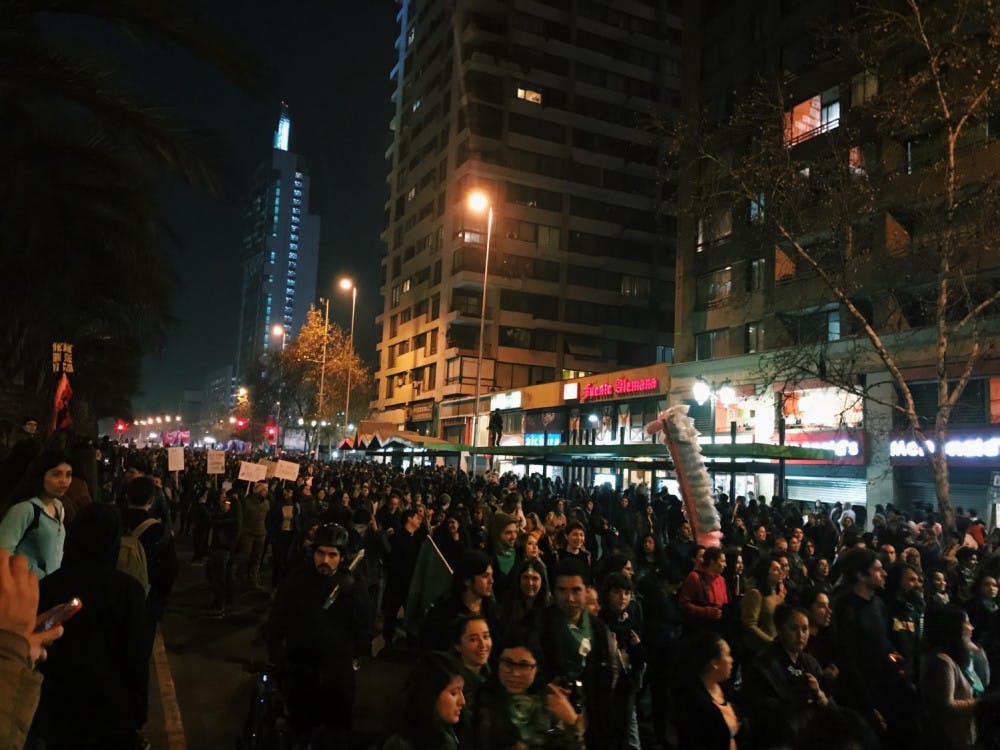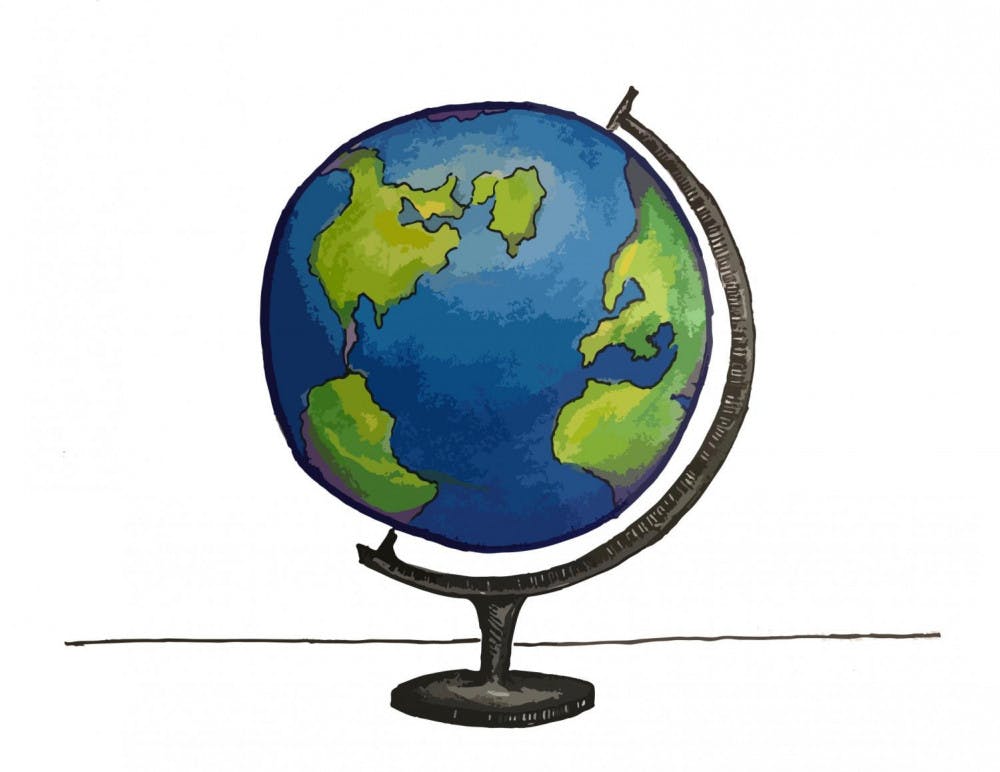
Varsha Vijayakumar ’20 attended the “aborto libre” protest for reproductive rights involving abortion in Chile. COURTESY PHOTO
Whenever I meet someone new in Chile, I am inevitably asked the question: Where are you from?
I usually explain that I was born and raised in the United States, but my parents are from India and that’s why I look the way I do. Most people, unable to accept that I can be both, will question me until I give up the American aspect of my identity. They reason that I don’t seem like the stereotypical gringa (a term that in most Latin American countries is a condescending way to refer to people from the United States) and therefore can’t possibly qualify as a true American. I used to push back, but after these past two weeks, I don’t mind that Chileans can’t see my hyphen-Americanness.
Right now, I don’t want to see it, either.
I am studying on a human rights track at Universidad Alberto Hurtado, a private institution nestled in Chile’s capital city, Santiago. The program consists of two courses at the university, an internship and an independent project. Now nearly halfway through my semester abroad, I can confidently say that I feel truly immersed in and aware of the social justice issues around me. But sometimes, I can’t help but feel like a hypocrite. As the days go by, I find it increasingly ironic that I flew to a whole other continent to study human rights when there are so many violations happening back home in the States, in my own backyard.
Living abroad has its benefits. I can choose to be actively invested in American political affairs or shut them out completely. On days when I am emotionally overwhelmed with Chilean issues — like the fact that there are still hundreds of untraceable desaparecidos (missing persons) from Pinochet’s brutal dictatorship, or the ways in which Haitian-Chilean immigrants quietly stomach daily acts of racism — I go for the latter, shutting out the news entirely. Ignoring news from home is definitely easier said than done, so I compromise with an artificial time cap: twenty minutes to catch up on the latest in U.S. news, not a second more.
But ever since Dr. Christine Blasey Ford came forward to publicly accuse now-Supreme Court Justice Brett Kavanaugh of sexually assaulting her, that compromise went right out the window. For two weeks, my eyes were glued to my phone screen, obsessively refreshing news outlets for the latest on Judge Kavanaugh’s confirmation process. I read about Deborah Ramirez and then of Julie Swetnick, by which point I could not focus on much else. It was terrible timing — I was in the middle of an exam period, and had to submit three papers by the end of the week.
My host mother could tell something was off about me, so she timidly broached the topic one night as we were tomando once, or having the Chilean version of tea time. I tried my hardest to explain, but I found myself fumbling for words. I hadn’t been taught the words for sexual assault in my Spanish classes.
On Thursday, Sept. 23, the day of the Senate hearings, two of my close friends and I decided to camp out in a cafe, determined to finish our papers for a history class we shared. Instead, we completely broke the language pledge and started ranting to each other about everything that was going on, finally letting out days of pent-up emotions. It is hard enough to be abroad and immersed in a completely different culture — to be around people completely unaware of something that means the world to you is crippling. After a while of impassioned discussion, we tried to go back to writing, but ended up livestreaming the entirety of the Senate hearings. No papers were written that night.
The next day as I was taking the metro back home from university, I came across the video of Ana Maria Archila and Maria Gallagher confronting Arizona Republican Senator Jeff Flake in an elevator. Hearing them speak was immensely validating and exactly what I needed to hear, especially as someone that has also survived sexual violence. Against my best wishes, I began to cry uncontrollably in the train, drawing confused stares from the Chileans around me. An elderly woman tenderly tapped my shoulder on her way out of the train. Todo estará bien, she said. Everything will be alright.
She has a point. Yes, Brett Kavanaugh was officially confirmed to the Supreme Court this past Saturday. And yes, this is one more reason for me to be ashamed of the United States. But these past two weeks have also proven to us the overwhelming solidarity that exists among our communities.
There is power in our voices — and boy, are we screaming.
Comments




